Gordon Sondland, U.S. ambassador to the European Union, testified on Wednesday that he and other U.S. officials were working at the “direction of the President” when they cooperated with Rudy Giuliani to urge Ukraine to open investigations into the 2016 election and Burisma — the Ukrainian energy company of which Joe Biden’s son sat on the board — as conditions for President Zelensky to get a meeting at the White House.
“We followed the President’s orders,” Sondland said, referring to the directive that they work with Giuliani on Ukraine policy.
President Donald Trump quickly distanced himself from Sondland, whom he appointed, as the ambassador’s dramatic testimony unfolded. “This is not a man I know well,” he told reporters after he stepped out of the White House this morning. “He seems like a nice guy though.”
In an explosive opening statement, Sondland testified that Trump’s personal lawyer initiated the “quid pro quo” that has been at the heart of the unfolding impeachment inquiry into President Donald Trump. “Mr. Giuliani’s requests were a quid pro quo for arranging a White House visit for President Zelensky,” Sondland said. “Mr. Giuliani was expressing the desires of the President of the United States, and we knew that these investigations were important to the President.”
The admission gave Democrats the strongest argument yet that the President was directly involved in directing his subordinates to convince the Ukrainians to conduct investigations he thought would benefit him politically. A senior Democratic staffer working on the inquiry immediately highlighted the gravity of the revelation. “He places his own actions directly at the feet of President Trump himself,” said the official, pointing out that the President selected Sondland for his position.
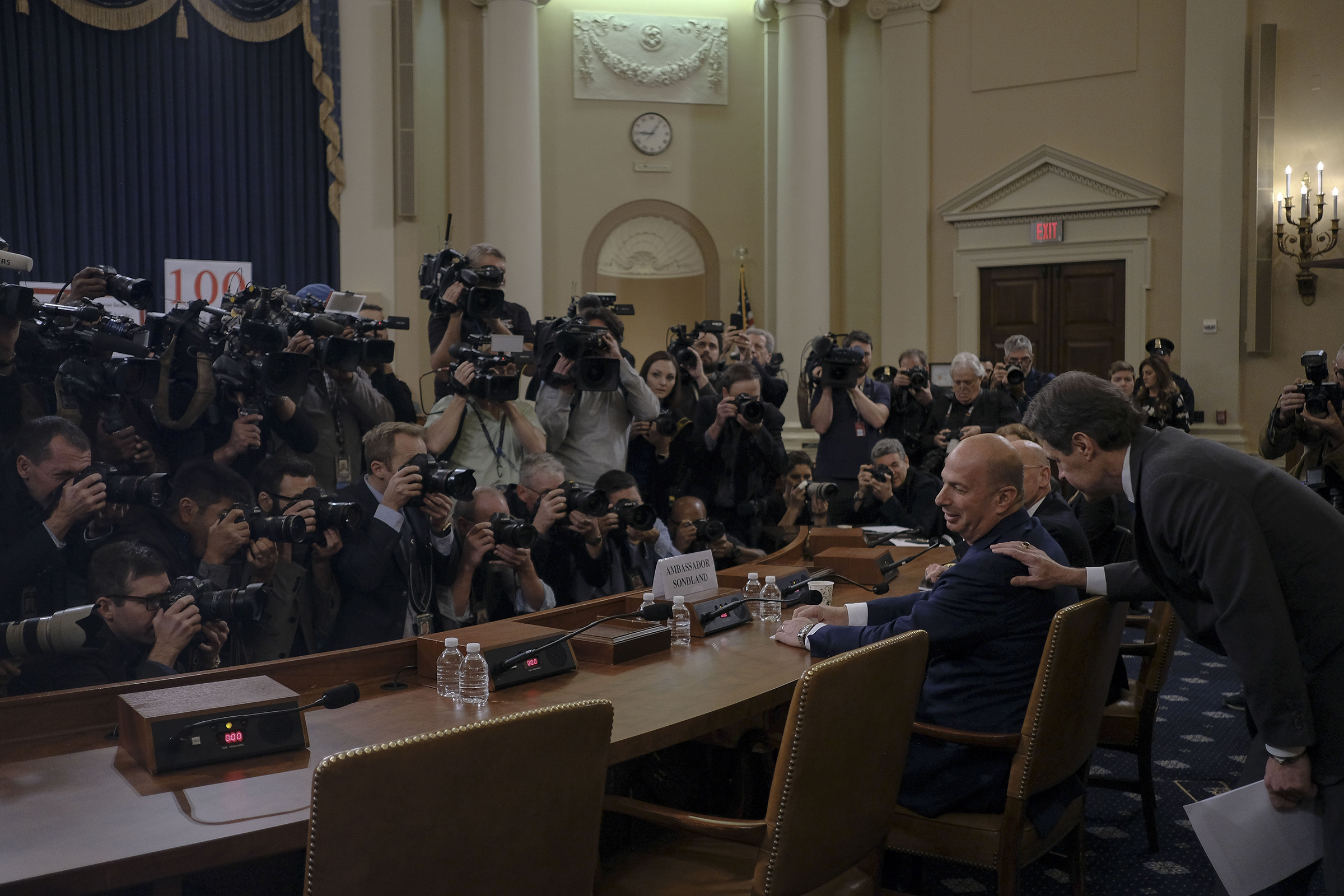
Sondland said that he, Energy Secretary Rick Perry and Ambassador Kurt Volker “all understood that if we refused to work with Mr. Giuliani, we would lose an important opportunity to cement relations between the United States and Ukraine.”
Sondland also alleged that Secretary of State Mike Pompeo was aware of Trump’s interest in Ukraine initiating investigations. “We kept the leadership of the State Department and the NSC informed of our activities. That included communications with Secretary of State Pompeo,” Sondland said. “They knew what we were doing and why.”
A State Department spokesperson later slammed the statement, saying Sondland “never told Secretary Pompeo that he believed the President was linking aid to investigations of political opponents. Any suggestion to the contrary is flat out false.”
Sondland arrived in the hearing room on Wednesday just as news of his opening statement was becoming public. Unlike previous witnesses, who took their seats and gravely faced the frenzied sea of cameras, Sondland turned to the press behind him trying to snap photos with their phones and posed with a bemused half-smile. Like Yovanovitch, Sondland testified as the sole witness at the hearing, flanked only by his lawyer.
Early in his testimony, Sondland told the House Intelligence Committee that while he was not certain if Trump had frozen the nearly $400 million in military aid as part of the administration’s efforts to extract investigations into Biden and the 2016 election out of Zelensky, Sondland had operated like the aid money was part of the conditions.
“In the absence of any credible explanation for the hold, I came to the conclusion that the aid, like the White House visit, was jeopardized,” Sondland said. “My belief was that if Ukraine did something to demonstrate a serious intention” to launch the investigations Trump wanted, “then the hold on military aid would be lifted.”
Later in the hearing, Ohio GOP Rep. Mike Turner pressed Sondland on how he reached this conclusion. “I have said repeatedly, Congressman, I was presuming,” Sondland said, appearing more tense than he had throughout much of the hearing.
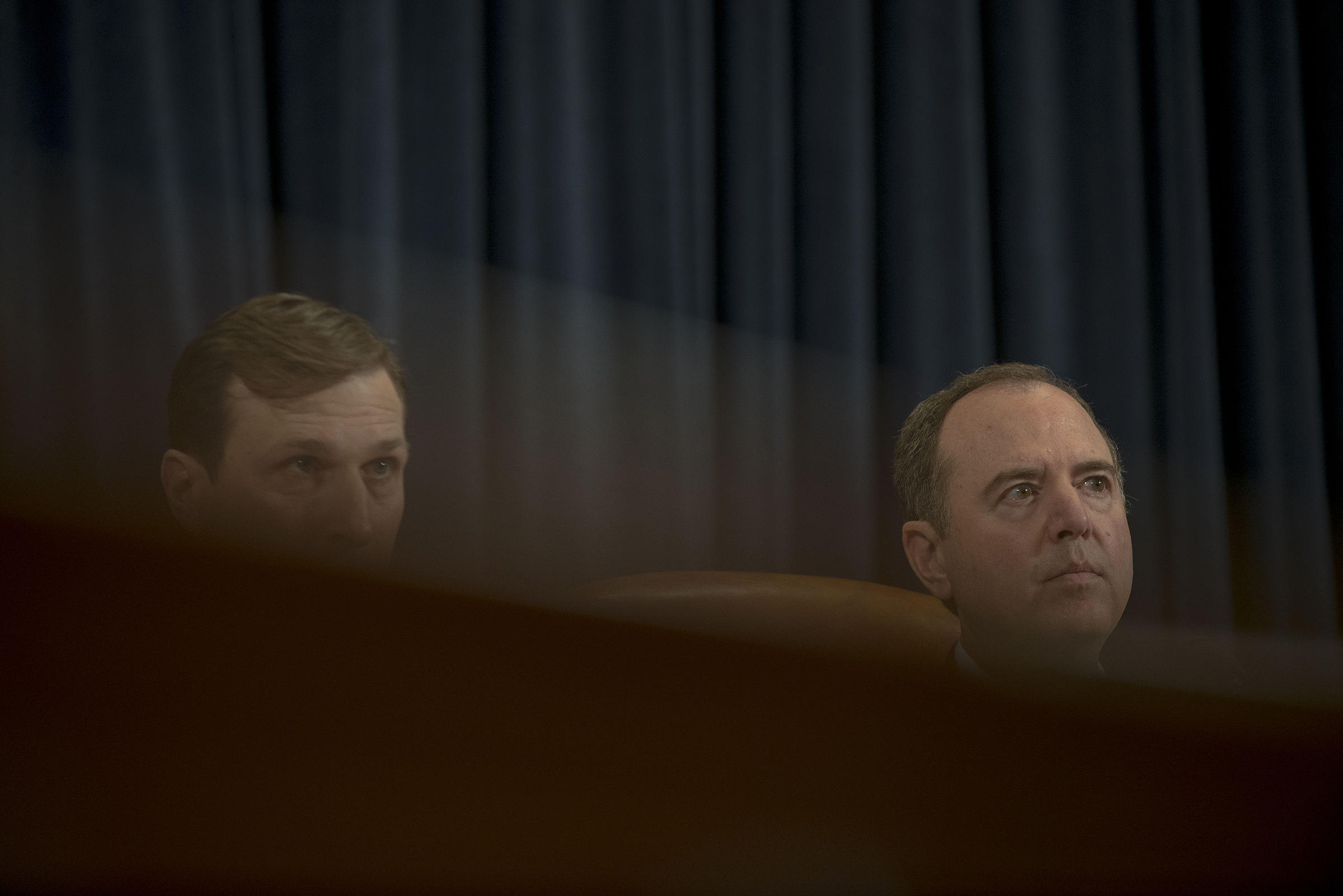
Republican counsel Steve Castor also pushed Sondland on how he concluded that Giuliani’s requests were what Sondland called the “desires” of Trump. “How did you know that? Who told you?” Castor asked.
“Well, when the President says, ‘Talk to my personal attorney,’ and then Mr. Giuliani, as his personal attorney, makes certain requests or demands, we assume it’s coming from the President,” Sondland said.
A lifelong Republican, Sondland had given $1 million to Trump’s inaugural committee and was later appointed as ambassador to the E.U. Sondland’s testimony was anticipated to be pivotal to the ongoing investigation after he revised his previous closed-door testimony with an addendum in early November. Sondland had originally testified that he did not know about plans to hold up aid in exchange for Ukraine pursuing the investigations, his revision stated that “resumption of U.S. aid would likely not occur until Ukraine provided the public anti-corruption statement that we had been discussing for many weeks.”
On Wednesday, Sondland said he simply lost track of those details because he talks to heads of state on a regular basis. “I am not a note taker,” he said. “Talking with foreign leaders might be memorable to some people. But this is my job. I do it all the time.”
Deputy Assistant Secretary of Defense Laura Cooper and Undersecretary of State for Political Affairs David Hale are testifying on Wednesday afternoon. They are expected to provide insight into the withheld military assistance and the irregular removal of former U.S. Ambassador to Ukraine Marie Yovanovitch, respectively.
TIME reporters will be in the room and watching. Follow along for updates.
Cooper: Ukrainians inquired about aid hours after July 25 call
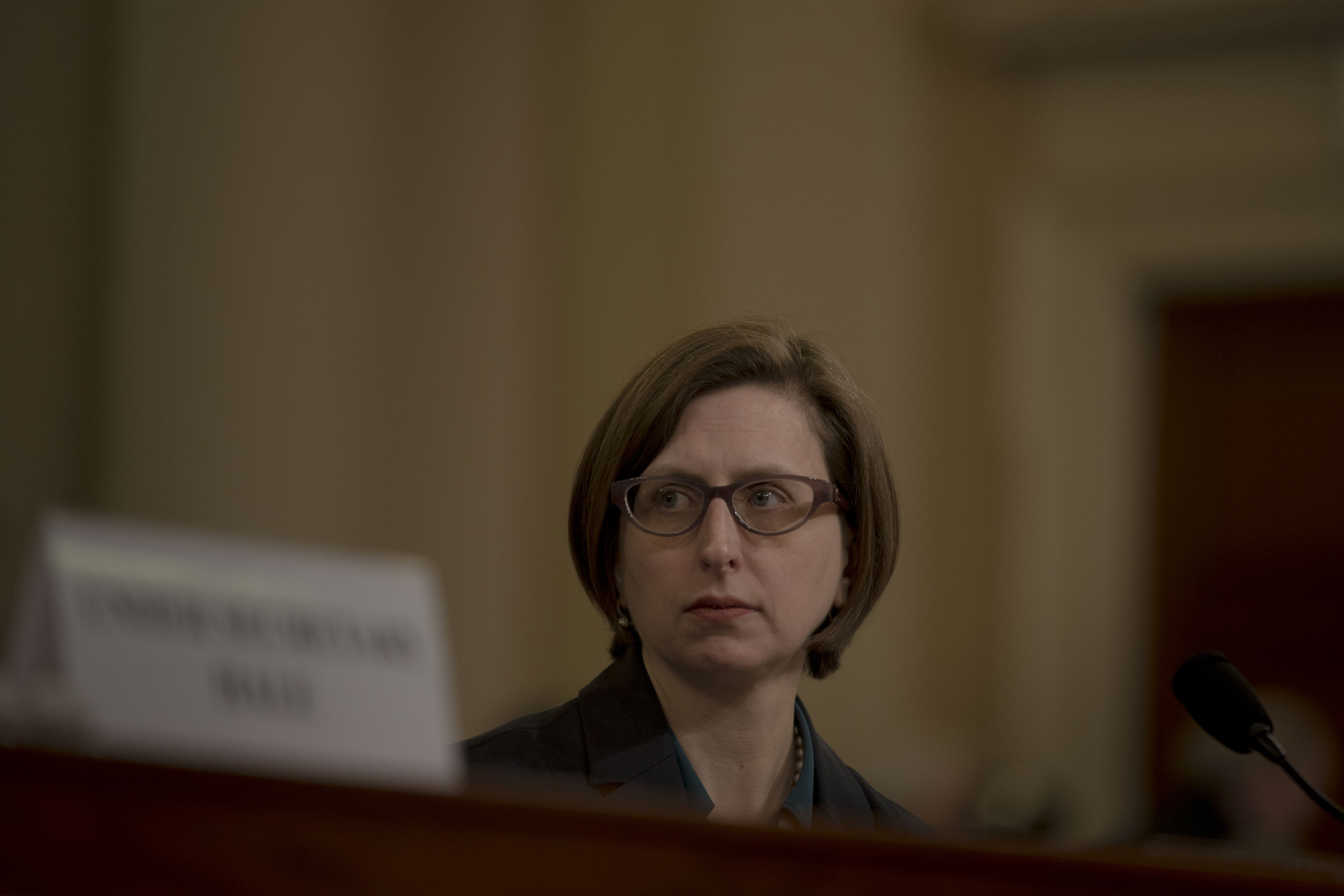
Cooper gave significant new details in her opening statement, telling lawmakers that Ukraine may have been aware of the hold-up of U.S. military aid much earlier than previously thought. Just five hours after Trump’s call with Zelensky on July 25, she testified, her staff received an email saying that the Ukrainian embassy was inquiring about the military aid. Two hours later, she said, there was another email saying that the Ukrainian embassy knew about “the [foreign aid] situation to an extent.”
“The way I would phrase it is that there was some kind of issue, yes,” Cooper said.
This undermines one defense from Trump allies — that there could not have been a quid pro quo if Ukraine wasn’t aware that the aid was being blocked. It had previously been reported — and some witnesses have testified — that senior Ukrainian officials may have known as early as mid-August. But Cooper’s testimony on Wednesday placed it even earlier.
‘I was presuming’
Rep. Turner pressed Sondland on discrepancies between testimonies given by him and Kurt Volker, the former U.S. envoy for the Ukraine peace talks who said yesterday that probes into Burisma and the 2016 were not a “requirement” for Zelensky to secure a White House meeting. “It was clear to Ambassador Volker that a meeting would not happen without the Burisma and 2016 [election investigations],” Sondland said. “It was absolutely a requirement, or we would have just had the meeting and been done with it.”
Noting that House Intelligence Committee Chairman Adam Schiff used the last hearing break to discuss Sondland’s belief that aid was tied to investigations, Turner also questioned Sondland about how he came to that assessment, since Trump hadn’t personally relayed that message to him. “I have said repeatedly, Congressman, I was presuming,” Sondland said, appearing more abashed than usual.“
“Nobody else on this planet told you that Donald Trump was tying aid to these investigations. Yes or No?” Turner demanded. “Yes,” Sondland answered, after Turner posed the question numerous times.
“You really have no testimony today that ties President Trump to a scheme to withhold aid from Ukraine in exchange for these investigations?” Turner asked. “Other than my own presumptions…” Sondland said.
‘This is like the trifecta of unreliability’
Republicans quickly adopted an aggressive tone with Sondland, trying to use the holes in his previous testimony to question his allegations that the Ukraine efforts were coming at Trump’s direction.
“This is like the trifecta of unreliability,” Castor said. “We’re talking about the impeachment of the President of the United States. The evidence here outta be pretty darn good.
Castor tried to distance the directions that Sondland was receiving from Giuliani from the President himself. “How did you know that? Who told you?” Castor sharply asked him, pressing him to back up his testimony that Giuliani was expressing “the desires of the President.”
“Well, when the President says, ‘Talk to my personal attorney,’ and then Mr. Giuliani, as his personal attorney, makes certain requests or demands, we assume it’s coming from the president,” Sondland said.
In a soundbite that was quickly blasted out by the White House, Sondland repeated what he previously said in his closed-door testimony: that when he asked Trump what he wanted from Ukraine, the President responded “I want nothing. I just want Zelensky to do the right thing.”
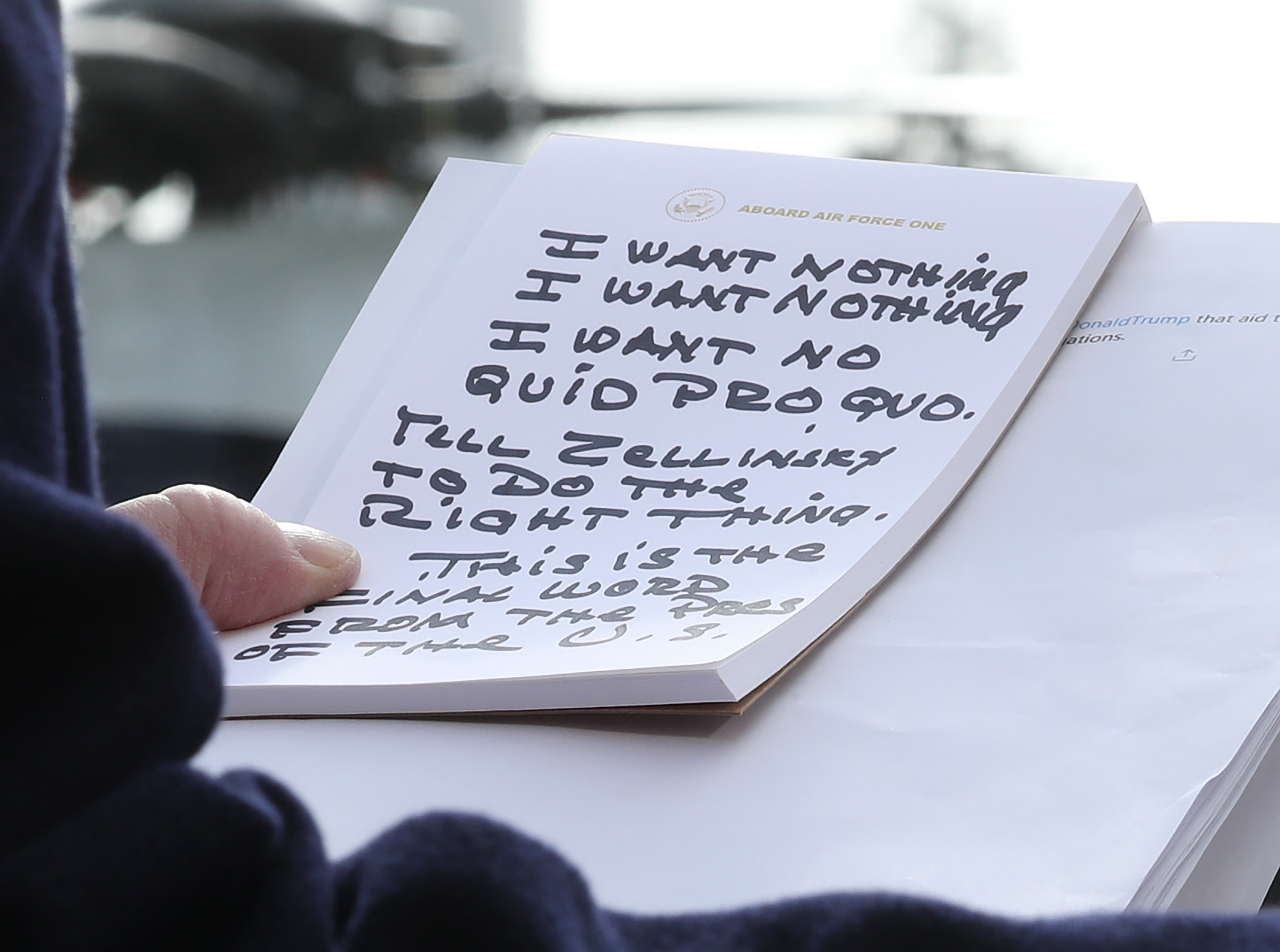
But he also insisted that he was not going to “opine on whether the President was being truthful or untruthful, but simply to relay I’ve gone as far as I can, this is the final word that I heard.”
Republicans’ line of questioning also seemed to backfire when Sondland pushed back against the notion that he has been involved in an “irregular channel” of foreign diplomacy, pointing the finger back at Trump himself and members of his cabinet. “I’m not sure how someone could characterize something as an irregular channel when you’re talking to the President of the United States, the Secretary of State, the National Security Advisor, the Chief of Staff to the White House, the Secretary of Energy — I don’t know how that’s irregular,” Sondland said. “I don’t know how they can consider us to be the irregular channel and they to be the regular channel when it’s the leadership that makes the decisions.” He added that nobody said their work was dangerous: “I don’t remember anybody sounding any alarm bell.”
‘Everyone was in the loop’
Sondland made it clear in his opening statement that he want to focus on one overarching message — that senior U.S. officials in Washington were aware of the pressure campaign coordinated by Giuliani to get Ukraine to agree to open these investigations.
“Everyone was in the loop. It was no secret,” he said. “They knew what we were doing and why.”
He mentioned several times that Secretary of State Mike Pompeo was aware of the quid pro quo for the White House meeting, also naming John Bolton, Mick Mulvaney, as well as other White House, State Department and National Security Council officials. As Sondland listed their names, he dramatically counted them off on his fingers.
“A lot of senior officials. A lot of senior officials,” he repeated. “We kept State Department leadership and others apprised of what we were doing. State Department was fully supportive [and] aware that a commitment to investigations was among the issues we were pursuing.”
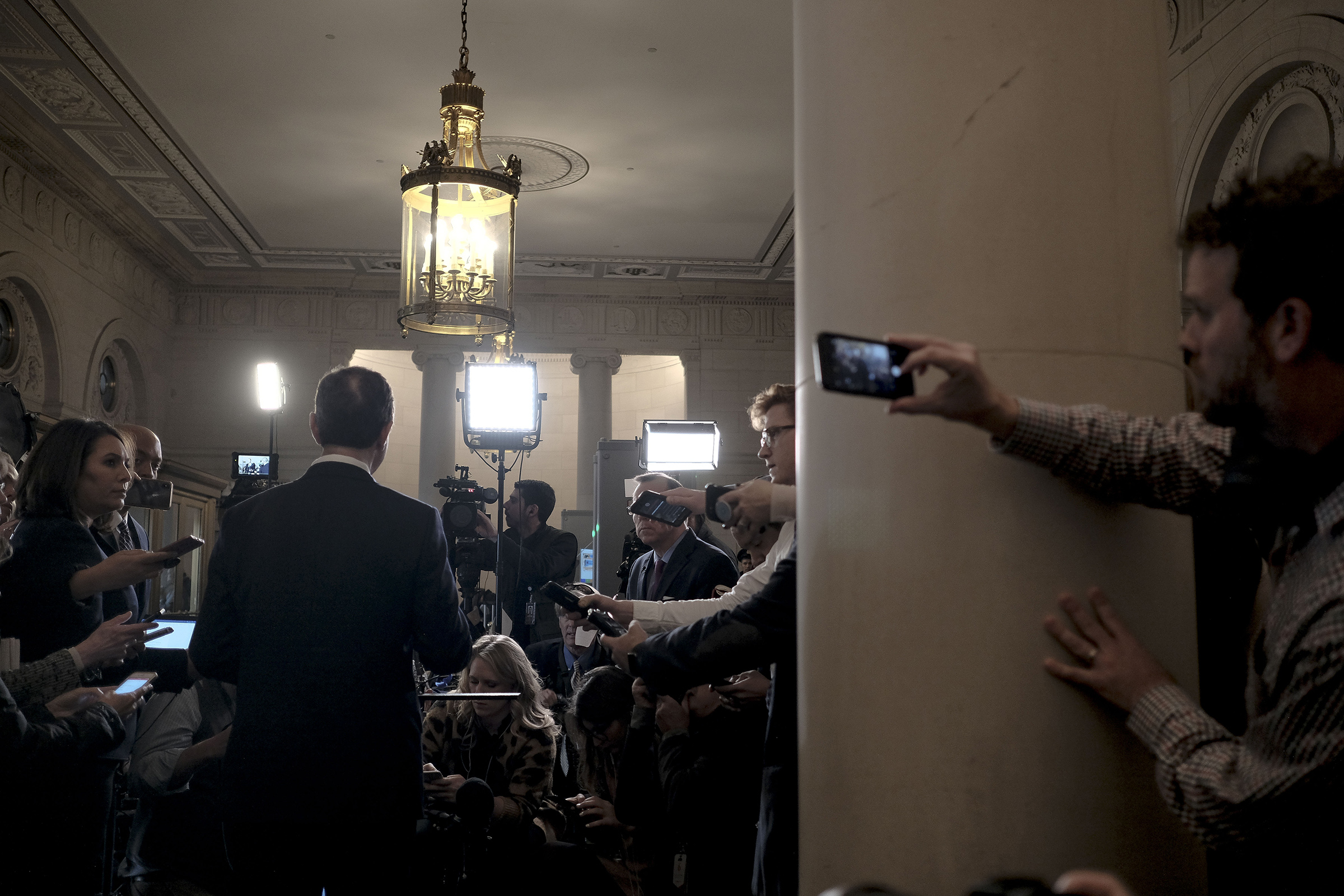
Pence, Perry and Pompeo push back against Sondland’s recollection
The portions of Sondland’s testimony that dealt with some of President Trump’s top associates almost immediately received pushback from their offices.
In Sondland’s opening statement, he specifically listed interactions with Vice President Mike Pence, Energy Secretary Rick Perry and Pompeo. He had expressed his concern to Pence in Warsaw about the holdup of aid, he said. Pence’s office strongly pushed back against this recollection. “The Vice President never had a conversation with Gordon Sondland about investigating the Bidens, Burisma, or the conditional release of financial aid to Ukraine based upon potential investigations,” Marc Short, Pence’s Chief of Staff, said in a statement Wednesday. “Ambassador Gordon Sondland was never alone with Vice President Pence on the September 1 trip to Poland. This alleged discussion recalled by Ambassador Sondland never happened.”
Sondland claimed that after Trump told him, Volker and Perry to coordinate Ukraine policy with Giuliani, Perry “volunteered to make the initial calls,” a claim Perry’s office contested.
“Ambassador Sondland’s testimony today misrepresented both Secretary Perry’s interaction with Rudy Giuliani and direction the Secretary received from President Trump,” Energy Department Press Secretary Shaylyn Hynes said in a statement. “As previously stated, Secretary Perry spoke to Rudy Giuliani only once at the President’s request. No one else was on that call. At no point before, during or after that phone call did the words ‘Biden’ or ‘Burisma’ ever come up in the presence of Secretary Perry.”
And a spokesperson for Pompeo, Morgan Ortagus tweeted that Sondland “never told Secretary Pompeo that he believed the President was linking aid to investigations of political opponents.” “Any suggestion to the contrary is flat out false,” Ortagus wrote.
‘I am not a note taker’
Sondland partly blamed the holes and discrepancies in his previous testimony on the White House and State Department, which he said did not allow him to access his phone records, work emails and other State Department documents.
“I have had hundreds of meetings and calls with individuals. But I am not a note taker, nor am I a memo writer. Never have been,” he said. “In the absence of these materials, my memory has not been perfect.”
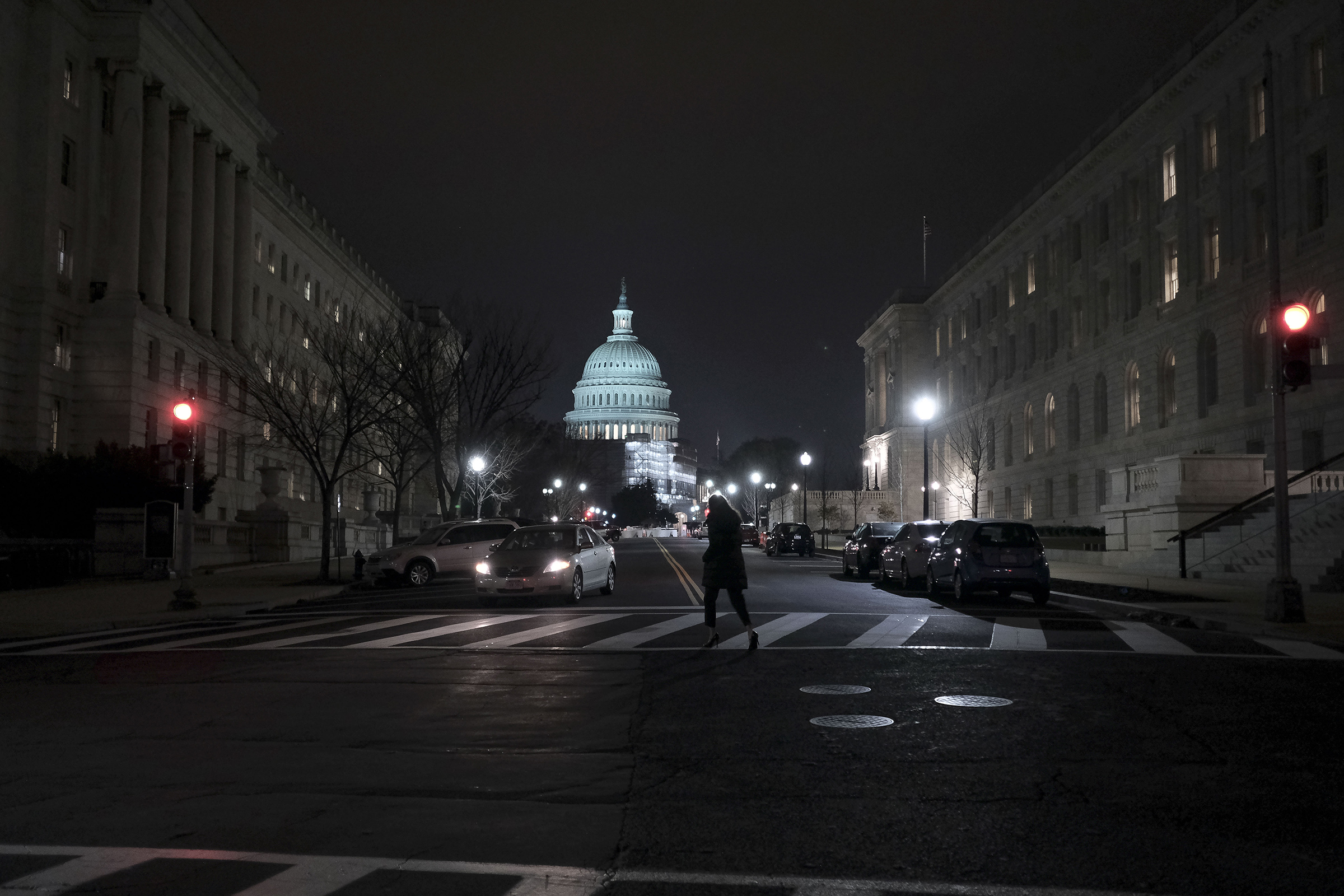
‘The topic of investigations was important to President Trump’
The day after the now-infamous July 25 phone call between Trump and Ukrainian President Volodymyr Zelensky, Ambassadors William Taylor, Volker and Sondland met with Zelensky in Kyiv, Sondland said in his opening remarks. In turn, Trump and Sondland touched base on the phone later that day on July 26.
Sondland testified on Wednesday that he didn’t remember specifics of the call, which lasted five minutes, but that he had “no reason to doubt that this conversation included the subject of investigations” into Biden and the 2016 election. “Given Mr. Giuliani’s demand that President Zelensky make a public statement about investigations, I knew that the topic of investigations was important to President Trump,” Sondland said. “Actually, I would have been more surprised if President Trump had not mentioned investigations,” he added.
More Must-Reads from TIME
- Cybersecurity Experts Are Sounding the Alarm on DOGE
- Meet the 2025 Women of the Year
- The Harsh Truth About Disability Inclusion
- Why Do More Young Adults Have Cancer?
- Colman Domingo Leads With Radical Love
- How to Get Better at Doing Things Alone
- Michelle Zauner Stares Down the Darkness
Write to Vera Bergengruen at vera.bergengruen@time.com, Abby Vesoulis at abby.vesoulis@time.com and Alana Abramson at Alana.Abramson@time.com